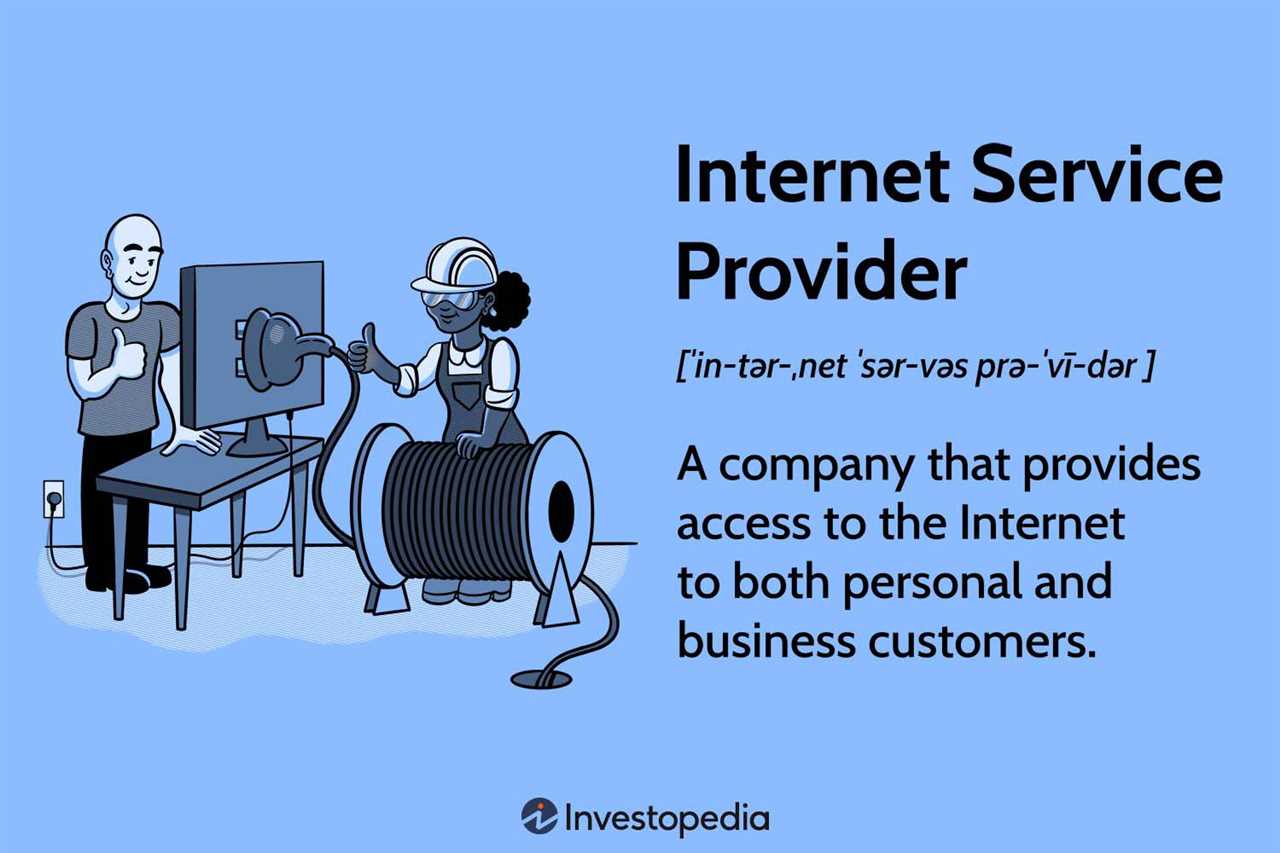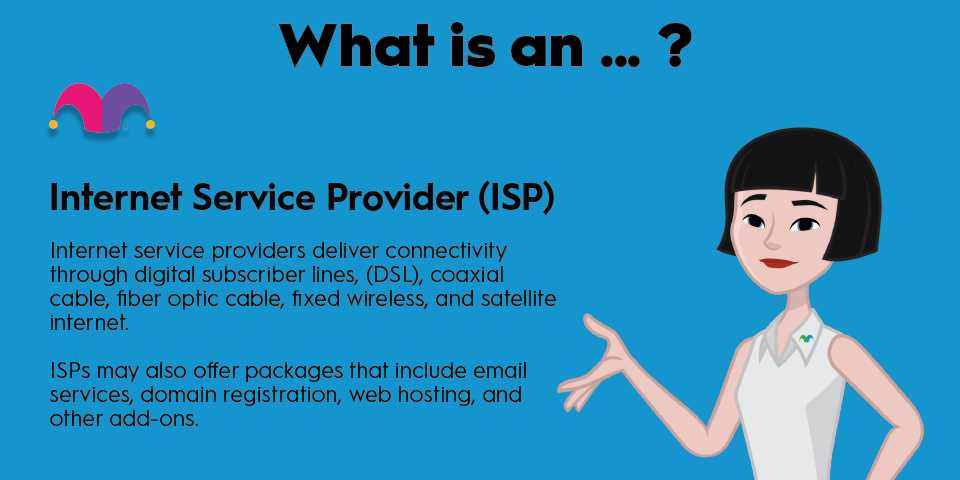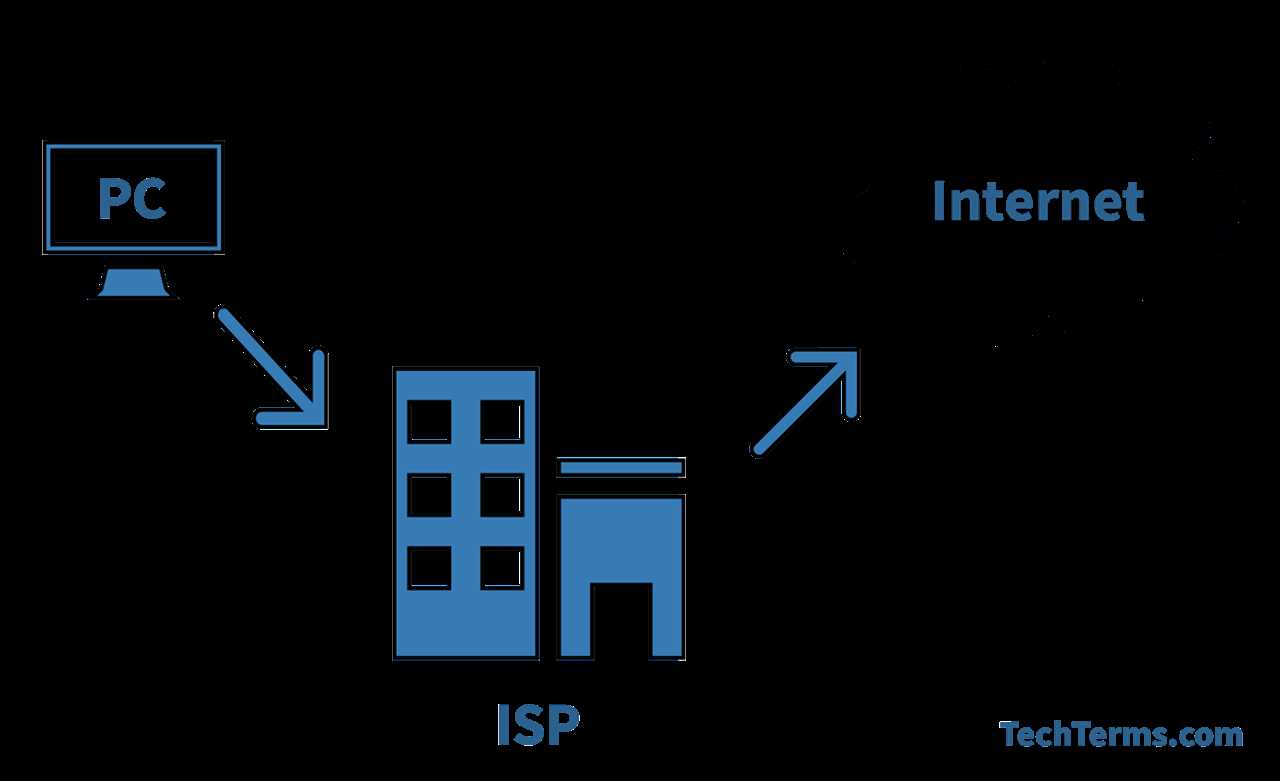What is an Internet Service Provider?

An Internet Service Provider (ISP) is a company or organization that provides access to the internet for individuals and businesses. ISPs offer various services and technologies to connect users to the internet, allowing them to browse websites, send and receive emails, stream videos, and more.
ISPs act as intermediaries between users and the internet, providing the necessary infrastructure and connectivity. They maintain networks of servers, routers, and other equipment to ensure reliable and fast internet access for their customers.
ISPs offer different types of internet connections, such as broadband, wireless, and dial-up. They may also provide additional services like web hosting, domain registration, and virtual private networks (VPNs).
When you sign up with an ISP, they assign you an IP address, which is a unique identifier for your device on the internet. This allows you to send and receive data over the internet and access websites and online services.
ISPs play a crucial role in enabling individuals and businesses to connect to the digital world. Without ISPs, it would be impossible to access the vast amount of information and services available on the internet.
Importance of Internet Service Providers

An Internet Service Provider (ISP) plays a crucial role in our modern digital world. With the increasing reliance on the internet for communication, information, entertainment, and business, the importance of ISPs cannot be overstated.
One of the key reasons why ISPs are important is their ability to provide reliable and high-speed internet connections. Whether it’s for browsing the web, streaming videos, or downloading files, a fast and stable internet connection is essential for a seamless online experience. ISPs invest in infrastructure and technologies to ensure that their customers have access to fast and reliable internet services.
Moreover, ISPs offer a wide range of services that cater to the diverse needs of individuals and businesses. From basic internet plans for casual users to dedicated connections for businesses, ISPs have tailored offerings for different requirements. They also provide additional services such as email accounts, web hosting, and virtual private networks (VPNs) to enhance the online experience and ensure data security.
Furthermore, ISPs play a vital role in maintaining network neutrality. Network neutrality ensures that all internet traffic is treated equally, without any discrimination or preferential treatment. ISPs are responsible for managing network traffic and ensuring that all users have fair and equal access to online content and services.
Products and Services Offered by Internet Service Providers
Internet Service Providers (ISPs) offer a wide range of products and services to meet the needs of their customers. These offerings can vary depending on the specific ISP, but here are some common products and services you can expect from most ISPs:
- Internet Plans: ISPs offer various internet plans with different speeds and data allowances. This allows customers to choose a plan that best suits their needs and budget.
- Home Internet: ISPs provide internet connectivity to residential customers. They offer packages that include both internet access and necessary equipment, such as modems and routers.
- Business Internet: ISPs also cater to the needs of businesses by offering specialized internet plans and services. These plans often include features like static IP addresses, dedicated support, and faster upload speeds.
- Wi-Fi Services: Many ISPs provide Wi-Fi services to their customers. This allows users to connect their devices wirelessly to the internet within their homes or businesses.
- Email Accounts: ISPs often provide email accounts to their customers. These accounts can be personalized with the customer’s chosen username and domain.
- Web Hosting: Some ISPs offer web hosting services, allowing customers to host their websites on the internet. These services may include features like domain registration, website builders, and technical support.
- Security Services: ISPs may offer security services to protect their customers’ internet connections and devices. These services can include antivirus software, firewalls, and spam filters.
- Technical Support: ISPs typically provide technical support to assist customers with any internet-related issues or inquiries. This can be done through phone, email, or online chat.
Broadband Internet
Broadband Internet is a high-speed internet connection that provides faster and more reliable access to the internet compared to traditional dial-up connections. It allows users to browse the web, stream videos, download files, and use online services with ease.
Benefits of Broadband Internet

- High Speed: Broadband internet offers significantly faster download and upload speeds compared to dial-up connections. This means you can download large files, stream high-definition videos, and play online games without any lag or buffering.
- Always-On Connection: Unlike dial-up connections that require users to manually connect and disconnect, broadband internet provides an always-on connection. This means you can stay connected to the internet 24/7 without any interruptions.
- Multiple Devices: Broadband internet allows you to connect multiple devices to the internet simultaneously. Whether you have a smartphone, tablet, laptop, or smart home devices, you can connect them all to the internet without experiencing a decrease in speed.
- Improved Productivity: With broadband internet, you can work more efficiently and effectively. You can easily access cloud-based applications, collaborate with colleagues in real-time, and download/upload large files without any delays.
- Enhanced Entertainment: Broadband internet enables you to stream high-quality videos, play online games, and enjoy seamless video conferencing. You can also connect to smart TVs and streaming devices to access a wide range of entertainment options.
Types of Broadband Internet
There are different types of broadband internet connections available, including:
- DSL (Digital Subscriber Line): DSL uses existing telephone lines to provide high-speed internet access. It offers faster speeds than dial-up connections and is widely available in urban and suburban areas.
- Cable Internet: Cable internet uses the same coaxial cables that deliver cable television to provide internet access. It offers faster speeds than DSL and is available in many areas.
- Fiber Optic Internet: Fiber optic internet uses thin strands of glass or plastic to transmit data as pulses of light. It offers the fastest speeds and is ideal for heavy internet users and businesses.
- Satellite Internet: Satellite internet uses satellites to provide internet access. It is available in remote areas where other types of internet connections may not be accessible.
- Fixed Wireless Internet: Fixed wireless internet uses radio signals to provide internet access. It is commonly used in rural areas where laying cables or installing satellite dishes may not be feasible.
Overall, broadband internet offers a reliable and fast internet connection that is essential for both personal and professional use. Whether you need to work from home, stream your favorite shows, or stay connected with friends and family, broadband internet ensures a seamless online experience.
Wireless Internet
Wireless internet is a popular choice for both residential and business users due to its convenience and flexibility. It allows users to connect to the internet from anywhere within the range of the wireless signal, eliminating the need for wired connections.
With wireless internet, users can connect multiple devices to the internet simultaneously, such as smartphones, tablets, laptops, and smart home devices. This allows for seamless connectivity and the ability to access the internet from anywhere in the home or office.
Wireless internet offers high-speed internet access, allowing users to stream videos, download files, and browse the web with ease. It provides a reliable and stable connection, ensuring that users can stay connected without interruptions.
Internet service providers offer various wireless internet plans and packages to cater to different user needs. These plans may include different data limits, speeds, and pricing options. Users can choose the plan that best suits their requirements and budget.
In addition to residential users, businesses also rely on wireless internet for their operations. It allows employees to connect to the internet and access company resources from anywhere in the office, increasing productivity and flexibility.
Overall, wireless internet is a convenient and reliable option for internet connectivity. It provides users with the freedom to connect to the internet without the constraints of physical cables, making it an essential service offered by internet service providers.

Emily Bibb simplifies finance through bestselling books and articles, bridging complex concepts for everyday understanding. Engaging audiences via social media, she shares insights for financial success. Active in seminars and philanthropy, Bibb aims to create a more financially informed society, driven by her passion for empowering others.
